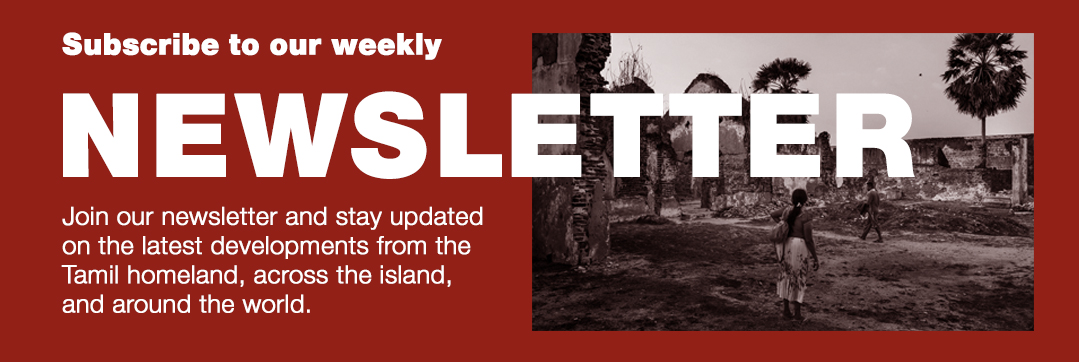.jpeg)
Last week, Tamils across the North-East carried out a hartal, the most widespread protest to take place since Sri Lankan president Gotabaya Rajapaksa came into power, demonstrating against Colombo’s ongoing campaign to ban commemorations of those who gave their lives for Tamil rights.
Sri Lankan police ordered businesses across the homeland to re-open, but traders defied the orders, signaling their discontent with the regime. Whilst surveillance and intimidation are not novel techniques used by the governing powers on the island, security forces have recently intensified their crackdown since the Rajapaksa brothers took up the highest offices.
Meanwhile, Sri Lanka’s efforts to intimidate human rights activists, including Tamil families of the disappeared, extends beyond the North-East. In his recent report, UN Secretary General António Guterres labelled the regime’s intimidation of human rights activists, including those who travelled to the UN Human Rights Council in Geneva as “absolutely unacceptable”. The report highlighted that participants were questioned before and after travel but also surveilled during Council sessions and NGO side events.
“Allegations of reprisals and intimidation reinforced the assertion that I made in my last report that repeated incidents can signal patterns,” he said. “In this context, I remain concerned about the deteriorating environment for those engaging with the United Nations.”
Despite the report from Guterres, Sri Lankan threats continued. As relatives of the disappeared prepared to mark International Children’s Day on October 1, Sri Lankan army officials threatened participants and demanded information about the protest. And yet again, despite the increasing fear of reprisal, Tamil families of the disappeared marked International Children’s Day, by flying black flags in protest as they mourned the day without their children. The families of the disappeared have been protesting for years, demanding to know the whereabouts of their children. However, the Sri Lankan state continues to fail to address repeated calls for justice and accountability.
For more than a decade now, Tamil protests across Eelam have defied state and military intimidation. They have continued to be a voice for those who remain under military occupation. As the Rajapaksa’s new form tyranny takes hold across the island, those Tamil voices of resistance must be protected.
Sharmini, Staff Writer
_____
For more regular updates, sign up to our newsletter below.
____

